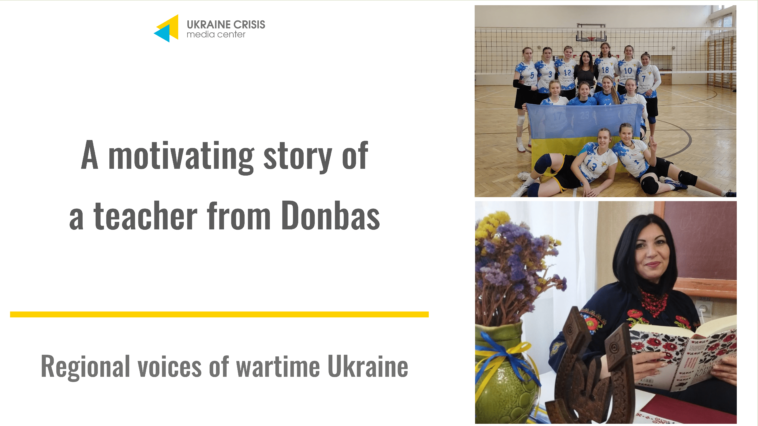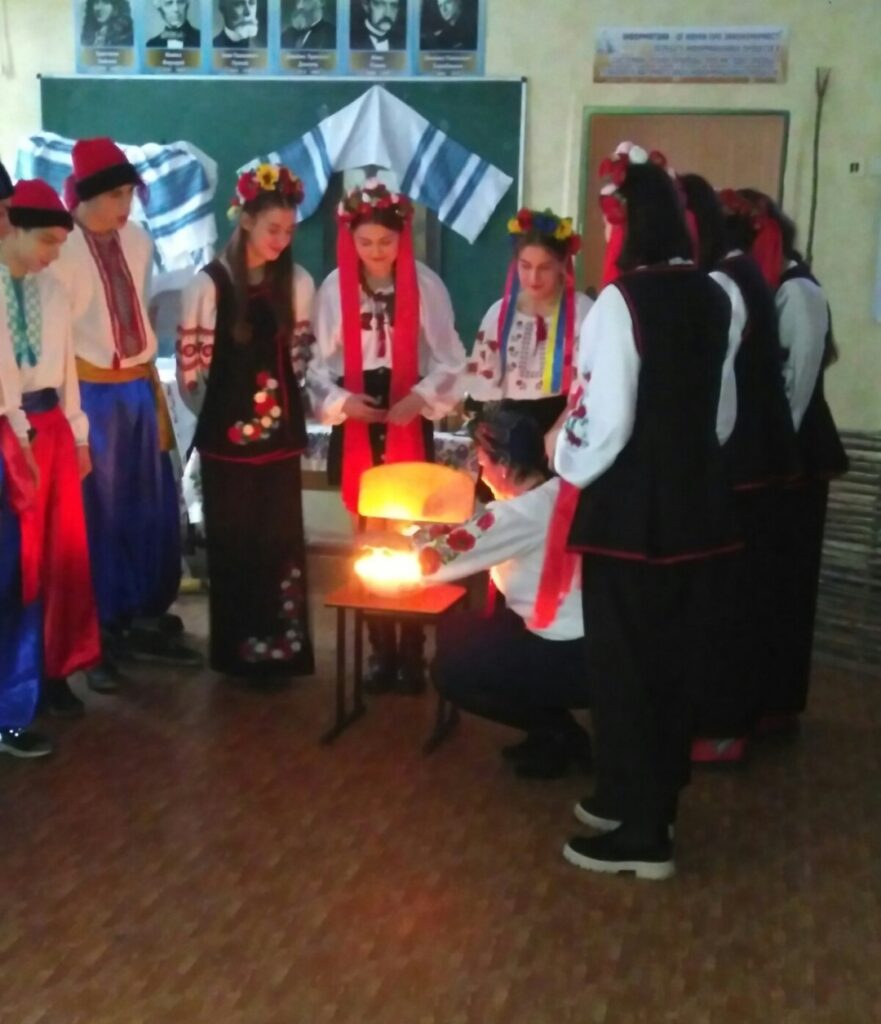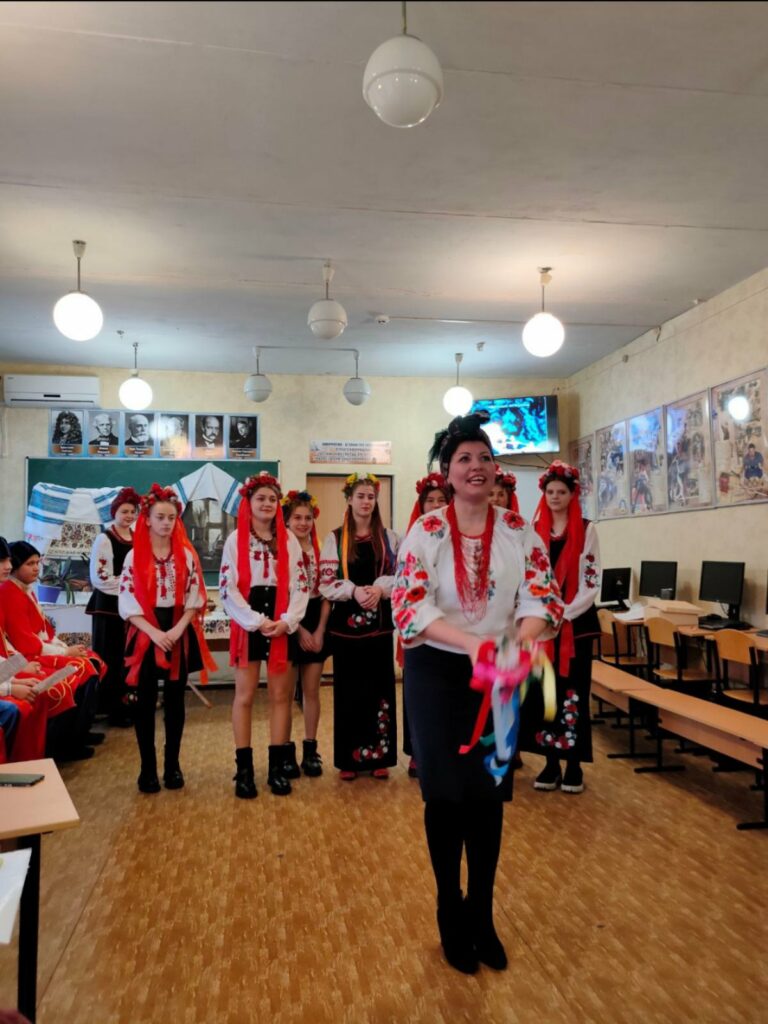Today, when we hear the word “Donetsk” in any name of a Ukrainian educational institution, enterprise, any field of activity, or just a person now living in Poltava, Kyiv or Lviv, we realize that it is no longer about a geographical marker. It is about people’s resilience, their strength and valor, as well as their courage to prove time and time again that Donetsk, Donbas is Ukraine.
Iryna Sytkovska, a teacher who was born in the Donetsk region, the Volnovakha district, is such a person. And she works in an equally courageous and strong educational institution, the Donetsk Regional Specialized Vocational College of Sports Profile named after S. Bubka, which is now located in Poltava. The college graduates are Ukrainian athletes who have won and are winning prestigious national and international competitions.
Our story is about the strength, patience and wisdom of Ms. Iryna Sytkovska, who teaches, motivates and is inspired by her students every day.
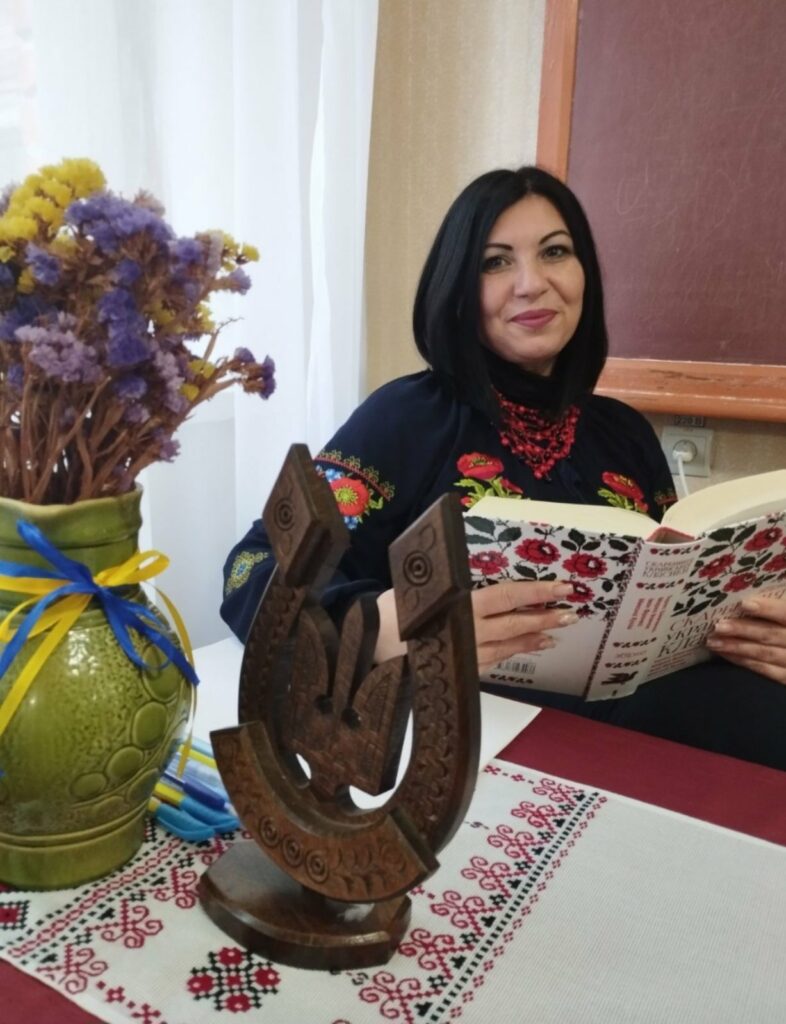
Bakhmut — Poltava
Iryna is a twice IDP. She lived in Bakhmut for a long time, worked at a local school, taught Ukrainian. She has very warm memories of Bakhmut. Today, this town, like her hometown of Volnovakha, has been destroyed by the Russians and occupied.
Today, Iryna is a deputy director for academic work at the S. Bubka College. She speaks about her work with inspiration and adoration. She says that a position in education is about a conscious choice of responsibility, which grows exponentially.
The woman did not choose education by chance. Her mother was also a teacher, so Iryna was fully aware of what she was doing when she chose the path of a teacher. Iryna graduated from Makiyivka Pedagogical School (Makiyivka has been occupied since 2014), then entered the Faculty of Ukrainian Language and Literature at the Sloviansk Pedagogical Institute. After graduation, she worked at the Bakhmut boarding school for about 12 years.
And for the past 9 years, she’s been teaching and raising the future Ukrainian sports elite at the Donetsk Regional Specialized College of Sports Profile named after S. Bubka.
After the outbreak of a full-scale war, it was decided to evacuate the college and almost all the staff from Bakhmut. Sports equipment and teaching materials were taken away in trucks. They took everything they could and had time to take.
The college director, Ihor Kazymyrovych, once said that Poltava was not chosen for relocation by chance. The Poltava region is not so far from the Donetsk region, where college students and teachers dream of returning.
It is emotionally difficult for the teachers and the college employees to recall evacuation from Bakhmut. It was the second time they had to move to a new place. And if the first time they had to leave Donetsk, now they had to leave the whole Donetsk region.
“‘First and foremost, we took the children out of Bakhmut by bus very quickly, took them to their hometowns and handed them over to their parents personally. Back then, the children thought we would never meet again. Because no one knew what would happen next. But a few days later, when the shock passed, they messaged each other and their teachers and asked when classes would resume,” Iryna recalls.
After the all-out war began, the fates of the college’s staff and students were different. But many employees also moved to Poltava. Iryna moved there too.
Later, the teaching process was resumed and most of the students returned. So, as before, Iryna is doing her favorite job — teaching Ukrainian and raising the future sports elite of Ukraine.
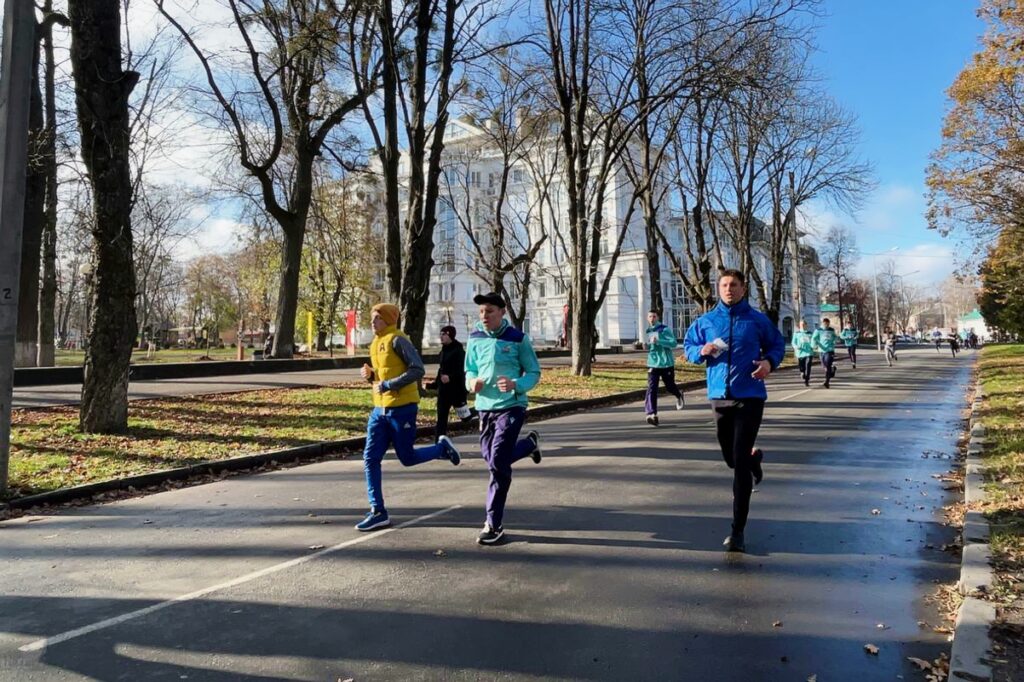
Teachers instead of parents
After the college moved to Poltava, teachers and coaches began to gradually gather their students from different parts of Ukraine. The college provided all the necessary conditions for the children’s comfortable and safe stay: a dormitory, a dining room and a shelter.
In modern Ukrainian realities, learning offline is a luxury. After all, children should not only study, but also interact with their peers, gain common experience, socialize and, finally, just be children.
“Frankly speaking, I haven’t noticed any problems with children’s adaptation and getting used to it. Modern children are so hardened…” the teacher reflects and adds, “Nowadays, not only teachers teach children, but also children can teach adults something. I’m learning more as a person not as a teacher, probably.”
She explains that, as a teacher of future athletes, she is interested not only in academic performance, but also in sports achievements and results of her students.
“My colleagues and I often attend competitions where our students participate, and, of course, we heartily cheer for them. For us, it is a part of our lives, and for them, it’s a great support. The children live in a dorm, they grow up, and their families are not around. That’s why we, the teachers, have to take on the role of parents. And that’s what gives our “sports stars” strength and a sense of support,” says Iryna Sytkovska.
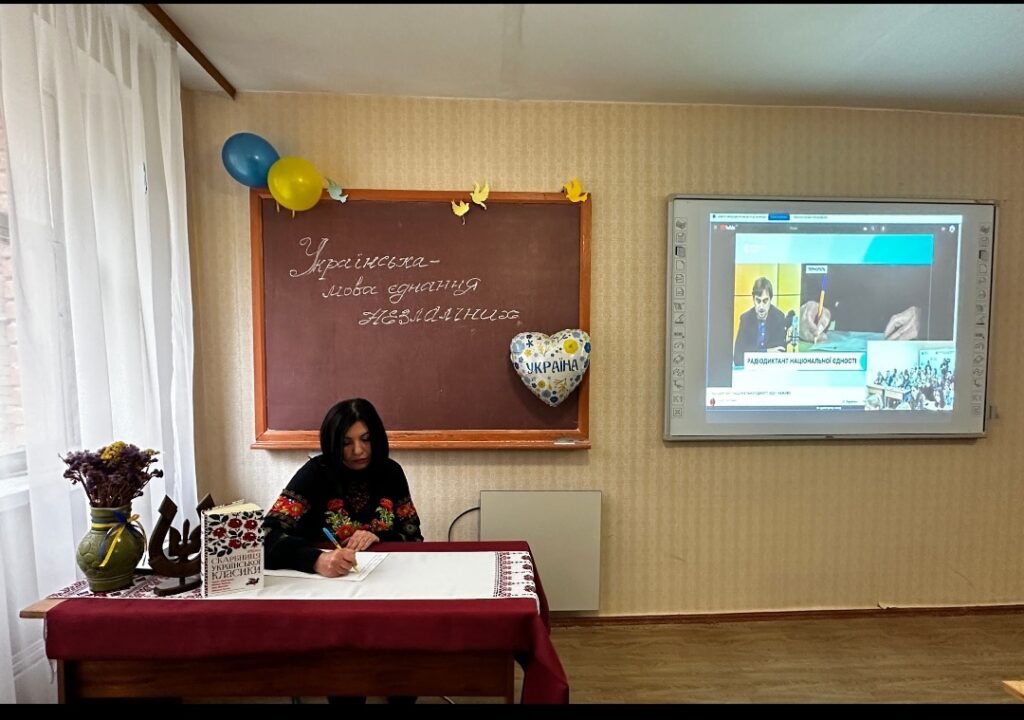
Iryna emphasizes that finding something unique in each child is crucial in teaching. Sometimes, for example, it is difficult for children to express their opinions in class. And at this point, they should be helped through their favorite pastime, which they are passionate about — sports.
“The college staff always takes a gradual and balanced approach. Everyone knows how to behave in difficult situations and, most importantly, how to help children adapt to a new place. Overall, we have a positive attitude! We often put on our tracksuits and go to the gym, where the children train. They tell us how and what to do. And this gives them not only a sense of self-realization and self-affirmation, but also an understanding of their own importance in their favorite activity. Indeed, here children teach adults!” explains the heroine.
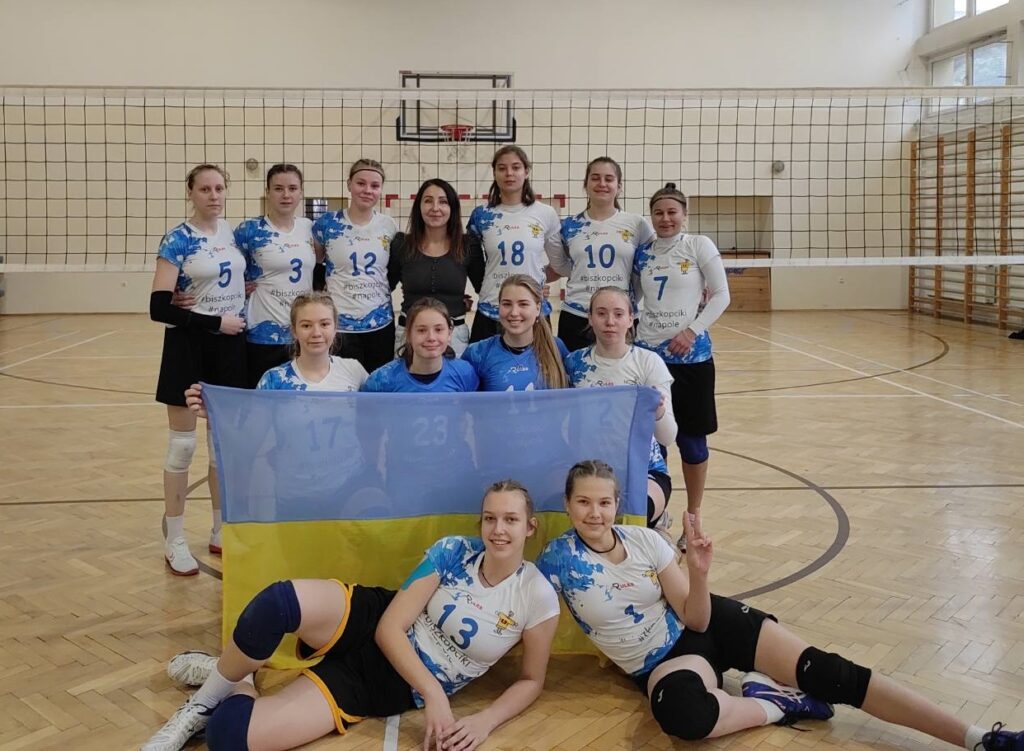
Iryna says that college athletes perform well at various competitions, taking top places, winning awards at national and international tournaments, despite their experience of second relocation. But most importantly, despite all the hardships, young athletes grow up to be human.
“We want our college students to grow up not just to be successful athletes, but also to become kind and sincere people. These are the qualities that teachers try to cultivate in children’s hearts!” says the teacher.
Today, one of the college’s well-known students is Maria Yefremova, a 17-year-old native of Bakhmut. Maria has been doing sports since she was 6. The girl’s parents are freestyle wrestling coaches. In 2024, Maria became a bronze medalist at the Ukrainian Women’s U23 Championship and a champion of Ukraine among juniors.
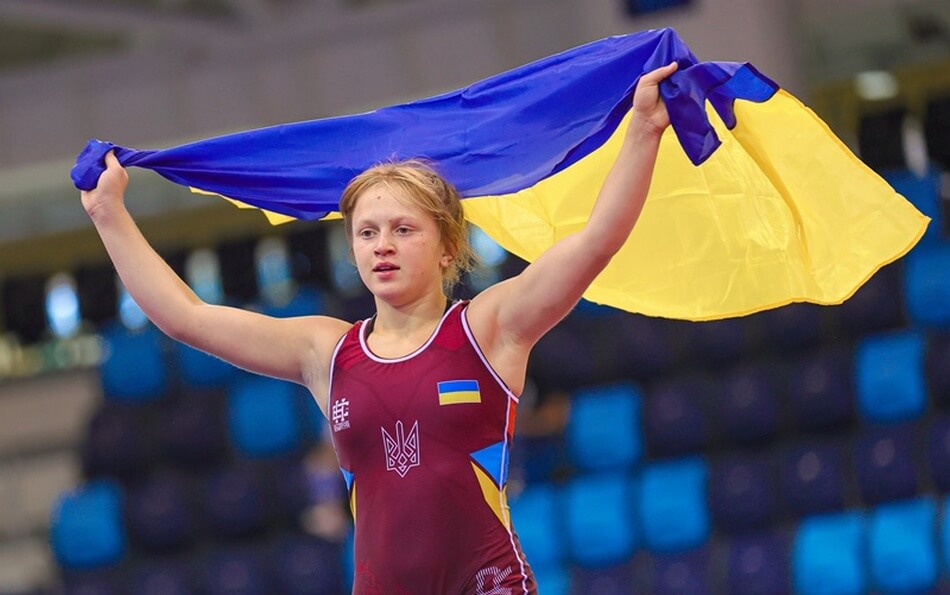
Iryna Sytkovska explains that at 17, the girl is already a master of sports of Ukraine and a member of the Ukrainian national freestyle wrestling team. Despite the evacuation and temporary loss of her main training facility, the girl continues to win international sports awards.
Instead of an afterword
Iryna says that after Russia’s full-scale invasion, children’s attitude towards learning the Ukrainian language has noticeably changed. Children, who used to speak only Russian every day, have begun to learn Ukrainian take an interest in it. As modern young people say: “It’s trendy now.”
“Since the beginning of the great war, both children and college staff try to speak Ukrainian as much as possible. Even those who aren’t very good at it. And the point is not just, as young people say, in the “trend”. Because love for the language can be instilled by studying traditions and customs of the Ukrainian people. No matter how “hackneyed” it may sound. That’s why my colleagues and I organize many events where the language is not just heard, but is a tool for understanding what is happening and a condition for direct participation. These include theme-based classes, St. Andrew’s parties, Ukrainian wedding ceremonies, etc. This has become a tradition in college. And if since 2018, children simply liked such events, as everyone dressed in authentic Ukrainian costumes, sang songs, danced and told fortunes, as our ancestors did, now it is a symbol of our struggle and national unity. These are the moments that children remember. They are happy to share their impressions and photos from the events with their parents. And then they encourage their parents to learn Ukrainian too. “, Iryna Sytkovska sums up.
Author: Tetiana Semakovska, Bakhmut in.ua
Carried out as part of the project supported by the US Embassy in Ukraine. The views of the authors do not necessarily coincide with the official position of the U.S. government.

